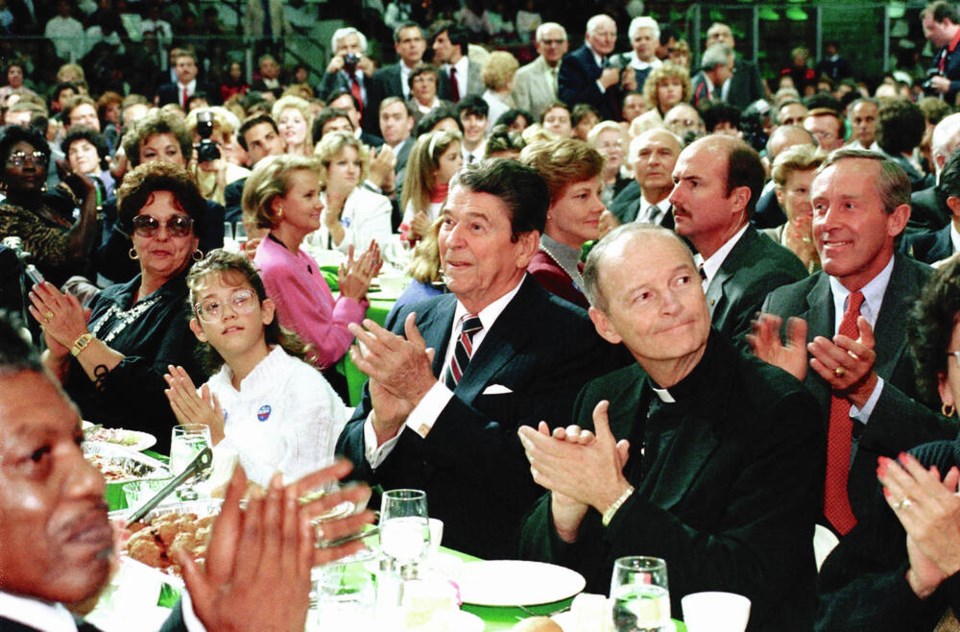Given the well-documented relationship between high levels of inequality and poor health and social outcomes in high-income countries, which I discussed last week, high levels of inequality cannot be tolerated.
But as I also noted last week, the World Inequality Report 2022 states simply: “Inequality is a political choice, not an inevitability.”
The report’s authors tell us that in the countries of the West, the period between the end of the Second World War and about 1980 was one of “fast productivity growth and increasing prosperity,” and at the same time “a period of shrinking inequality in many parts of the world.”
What kept inequality in check, the report notes, was policies that ensured minimum wages, promoted unions, kept taxes on the wealthy high and regulated business and the economy.
But “income and wealth inequalities have been on the rise nearly everywhere since the 1980s, following a series of deregulation and liberalization programs which took different forms in different countries.” This, of course, was the neoliberal revolution spearheaded by Margaret Thatcher in the U.K. and Ronald Reagan in the U.S., which rolled back the policies that had contributed to low levels of inequality.
As a result, we now find inequality rising to levels not seen since the early 20th century. Around 1900, globally, the ratio of the income of the top 10 per cent and the bottom 50 per cent was more than 16 to 1, but by 1980, this had fallen to 8.5 to 1; today it is back up to 15 to 1, notes the report.
Things were considerably better here in Canada: In 1900, the ratio was a bit more than 3 to 1, dropping to 1.5 to 1 by 1980. But nonetheless, the report notes, “income inequality in Canada has been rising significantly over the past 40 years,” and now sits at about 2.5 to 1, due to a combination of “financialization, deregulation and lower taxes.” (Financialization, states Investopedia, is “the increase in size and importance of a country’s financial sector relative to its overall economy,” adding that it “has played a major role in the decline of manufacturing in the U.S.”)
In a 2016 article critiquing neoliberalism, George Monbiot — an eloquent social critic and a columnist for The Guardian in the U.K. — notes that the neoliberal era has been characterized by a transfer of wealth from the poor to the rich. This is accomplished through “the smashing of trade unions, tax reductions, rising rents, [privatization] and deregulation.”
A political ideology that favours privatization, he notes, results in the rich acquiring public-sector resources “such as energy, water, trains, health, education, roads and prisons,” and then charging “rent” (a form of unearned income) for their use, either by private individuals or by the state. Similarly, he writes, the wealthy “acquire increasing control over another crucial asset: money.” They can then charge interest for loans, another form of rent that transfers wealth from the poor to the rich.
Another important but less recognised consequence of neoliberalism is pointed out in the World Inequality Report: “Nations have become richer, but governments have become poor.”
In fact, the report points out: “The share of wealth held by public actors is close to zero or negative in rich countries.”
This amounts to a transfer of wealth from the public to the private sector, with serious consequences: “The currently low wealth of governments has important implications for state capacities to tackle inequality in the future, as well as the key challenges of the 21st century such as climate change.”
The creation of rising levels of inequality was a clear political program, a set of policies explicitly intended to increase private wealth and offload responsibility on to the individual. This must be reversed, for the sake of societal well-being and future generations.
One obvious way is to re-introduce higher and more progressive levels of income tax; another is to bring in or beef up a wealth tax; a third is to increase corporate taxes.
While these may seem radical ideas, in reality they would simply be a return to the way things were in the 1970s, prior to the disaster of the neoliberal revolution. Next week, I will explore some of these proposals for reform.
Dr. Trevor Hancock is a retired professor and senior scholar at the University of Victoria’s School of Public Health and Social Policy.



